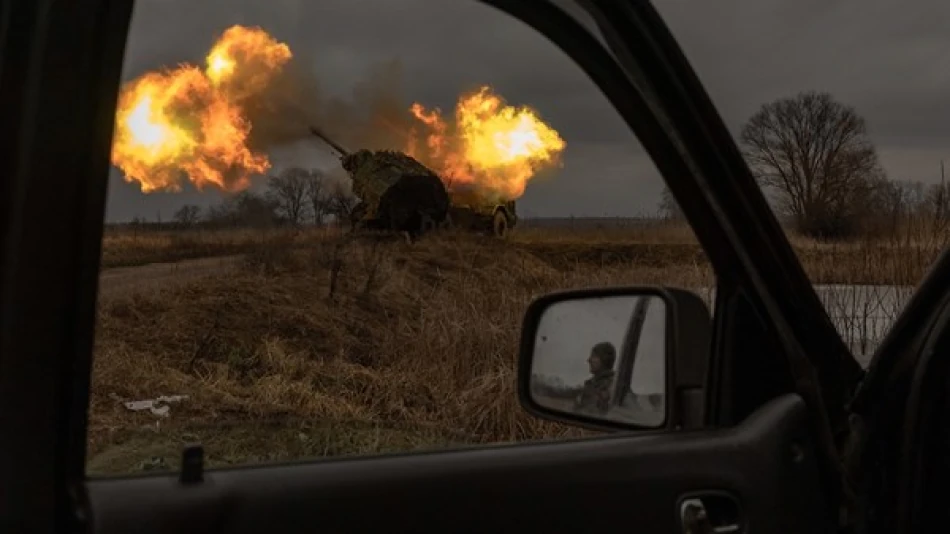
Russia Rebuffs NATO Troop Deployment in Ukraine, Escalating Tensions
Russia Rejects NATO Peacekeeping Plan as Trump Claims Putin Agreed to Security Guarantees
Russia has firmly dismissed British proposals to deploy NATO forces in Ukraine as part of any future peace settlement, calling such plans a dangerous escalation that could trigger a global conflict. The rejection comes as President Donald Trump claims Vladimir Putin has agreed to Western security guarantees for Ukraine resembling NATO's collective defense framework—a statement that highlights the deep contradictions in current diplomatic efforts.
Moscow's Hard Line Against Western Military Presence
Russian Foreign Ministry spokesperson Maria Zakharova accused Britain of deliberately undermining peace negotiations through what she termed "escalatory scenarios." Moscow's position reflects a fundamental red line: no Western military presence on Ukrainian soil, even in a peacekeeping capacity.
"We categorically reject any scenarios involving the deployment of military forces in Ukraine with NATO member participation, which could lead to an uncontrollable escalation of the conflict with unpredictable consequences," Zakharova stated.
This stance echoes Russia's pre-war demands that NATO halt its eastward expansion—a core grievance that Moscow cited as justification for its 2022 invasion. The Kremlin appears unwilling to accept any post-conflict arrangement that legitimizes Western military influence in what it considers its sphere of influence.
Britain's Peacekeeping Proposal Gains Ukrainian Support
British Prime Minister Keir Starmer has indicated readiness to deploy foreign troops to Ukraine once a peace agreement is reached. Ukraine views such deployments as essential security guarantees, particularly given Russia's history of violating previous agreements, including the 1994 Budapest Memorandum.
The British approach mirrors successful peacekeeping models used in the Balkans during the 1990s, where NATO forces helped enforce peace settlements. However, the Ukraine scenario presents far greater risks given Russia's nuclear capabilities and stated opposition to Western military presence.
Historical Precedent and Strategic Implications
Unlike smaller conflicts where peacekeeping forces operated with tacit great power consent, Ukraine represents a direct confrontation between NATO and Russia. Moscow's rejection suggests any peace deal may require creative alternatives to traditional peacekeeping—perhaps involving neutral countries or international organizations rather than NATO members.
Trump's Diplomatic Claims Face Reality Check
President Trump's assertion that Putin agreed to NATO-like security guarantees for Ukraine appears to conflict sharply with Russia's public statements. This disconnect raises questions about either the accuracy of Trump's characterization or the existence of significant gaps between private diplomatic discussions and official positions.
Trump's claim suggests potential progress in addressing Ukraine's core security concerns—namely, how to prevent future Russian aggression without full NATO membership. However, Russia's immediate rejection of NATO deployment plans indicates Moscow may have agreed to something far more limited than Trump's description implies.
The Security Guarantee Dilemma
The fundamental challenge remains reconciling Ukraine's need for credible security assurances with Russia's demand for a neutral, demilitarized Ukrainian state. Traditional security guarantees require enforcement mechanisms, typically involving military presence or automatic response triggers—precisely what Russia opposes.
Alternative models might include: expanded economic sanctions triggers, diplomatic isolation mechanisms, or security guarantees from non-NATO powers like China or India. However, none offer the deterrent effect of NATO's Article 5 collective defense clause.
Implications for Peace Negotiations
Russia's hardline stance on NATO involvement suggests that any sustainable peace agreement will require significant compromise from all parties. Ukraine may need to accept weaker security guarantees than desired, while Russia might have to tolerate some form of international monitoring presence.
The contradiction between Trump's optimistic claims and Russian rejections also highlights the complexity of managing multiple diplomatic channels. Success will likely depend on finding formulas that allow each side to claim victory while accepting practical compromises that fall short of their maximum demands.
Most Viewed News

 Layla Al Mansoori
Layla Al Mansoori






